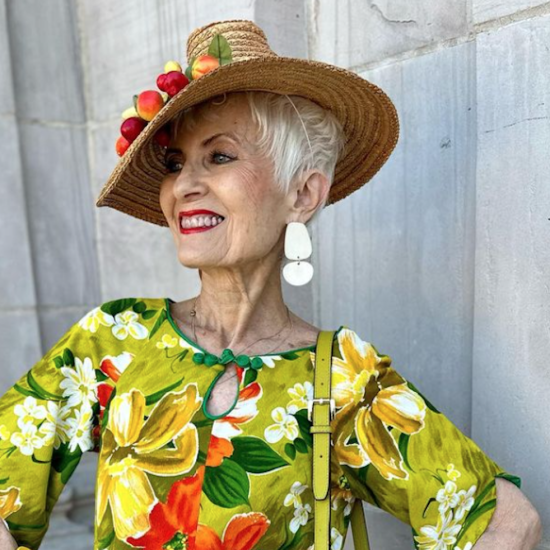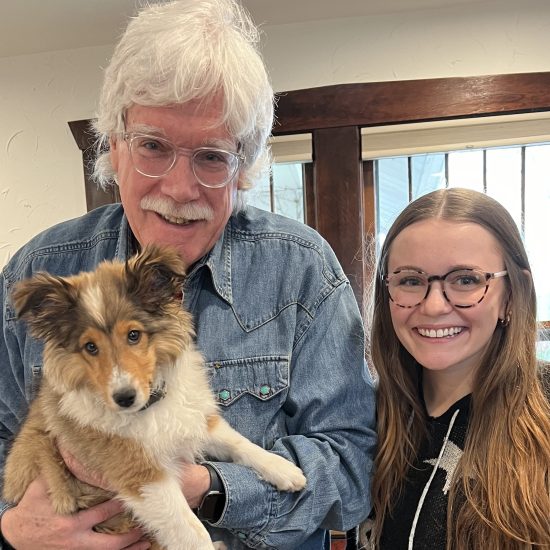
November is National Diabetes Awareness Month, with the 14th marking World Diabetes Day. Since there is so much to learn about diabetes and many common misconceptions, I wanted to share my story and bring awareness to this disease that affects over 11% of the U.S. population. As a journalist, I plan to use my abilities to inform others so they recognize the symptoms. It’s also important to me to provide perspective on what life with diabetes is like.
When I was a sophomore in high school, I became severely ill. I could barely stand and couldn’t keep any food in my system. My mom rushed me to Swedish Medical Center where I was quickly admitted to the intensive care unit and treated for diabetic ketoacidosis. As the medical team drew blood from my arms to run lab work, I can distinctly remember the doctor saying, “You got here just in time. If you would’ve waited any longer you wouldn’t have made it.”
A year before I was rushed to the ICU, I was diagnosed with Type 2 diabetes. At the time I was experiencing issues with my insurance and my parents were unable to afford my insulin. While awaiting coverage, I avoided sugary foods and rationed my insulin. However, after further testing during my hospital stay, I was diagnosed with Type 1 diabetes and learned I was going to be insulin-dependent my entire life. I was shocked and confused, unaware of the harm I had been causing myself by not taking my insulin regularly.
Type 1 diabetes is a chronic disease, where the pancreas makes little to no insulin. Insulin is a hormone that helps blood sugar enter the cells in your body for use as energy. Without it, blood sugar begins to build up in the bloodstream causing various symptoms and complications. According to the Centers for Disease Control and Prevention, Type 1 diabetes is less common than Type 2. Only 5 to 10% of people with the disease have Type 1 diabetes.
At the age of 14, I would push through my school days, go home and crawl into bed. I was experiencing extreme fatigue, frequent thirst, blurred vision, and continuous headaches. These symptoms along with weight loss and frequent urination are some of the early signs of diabetes. After several days of feeling unwell, my grandma, who is a Type 2 diabetic, checked my sugar levels with her blood glucose meter. My sugar levels were over 500 mg. A normal blood sugar level is less than 140 mg.
“Type 1 diabetics with high blood sugars will have those extreme symptoms, whereas Type 2 tends to sometimes be severe onset, but sometimes it’s more gradual. If they go in for their regular annual physicals, which we should all be doing, they’ll have a glucose check and it could be caught kind of early before they develop any symptoms of high blood sugar,” said Dr. Alexandra Reiher, an endocrinologist with Centura Health.



Diabetes management can become tedious at times but there have been new developments in technology that have helped with its daily management. There are many methods of insulin administration, and what has worked best for me is insulin pump therapy. My insulin pump is a small device that I carry on my body that delivers continuous doses of rapid-acting insulin throughout my day to match my body’s needs. Another device that I use daily is a Dexcom G6 continuous glucose monitor, which is usually attached to my arm or abdomen area. This device is synched to my insulin pump and estimates my blood sugar levels throughout the day. This technology has helped me keep control of my diabetes while getting through my daily activities and has made life with diabetes a lot easier.
Managing the disease from a young age has been extremely difficult for me. Being the only one with Type 1 in my family, I felt isolated and misunderstood by others. Getting used to new medication and continuously checking my blood sugar levels was overwhelming and discouraging at times.
“With chronic illness, there’s a lot more to it than just the disease. It’s also the burden of the disease,” Dr. Reiher said. “My experience with my patients is that sometimes, patients will associate their blood glucose number like it’s a test. If your sugars are always high it feels like you fail the test, and if your sugars are doing really well, you’re acing the test. If their sugars are running high, there’s embarrassment about it as if it’s their fault. [There’s a] feeling of self-shame and blame that they have with it, and it comes with mental health issues.”
Currently, there is no cure for Type 1 diabetes, but there is ongoing research for one. There have also been new advancements in technology and new medications that can prevent the progression of Type 1 diabetes. Research has brought diabetes management a long way from the years where people had to prick their fingers regularly to test.
“Research for Type 1 diabetics is huge right now. [That said], one thing that a lot of Type 1 diabetics will tell me is when they were first diagnosed, their doctor [would say], ‘Oh there’s going to be a cure in 10 years.’ And that’s whenever they were diagnosed, so in the ’60s, ’80s, and we still don’t have a cure,” Dr. Reiher said.
Managing my diabetes has improved my life and given me the opportunity to have a healthy pregnancy and give birth to my daughter. With the constant monitoring of my pump and Dexcom, I can continue to do everything I enjoy, like spending time with my family or traveling without worrying too much about my blood sugar levels. Living through this experience has taught me the importance of prioritizing my health, listening to my body and knowing my body’s limitations. This experience has also helped me realize how strong I really am.
“If you don’t have diabetes, take good care of yourself and get annual physicals and blood work done because the earlier you capture it the better. If you have diabetes, give yourself some grace and focus on doing all the things you’re supposed to be doing. But don’t be too hard on yourself, know that as long as you’re trying that’s what matters,” Dr. Reiher said.






